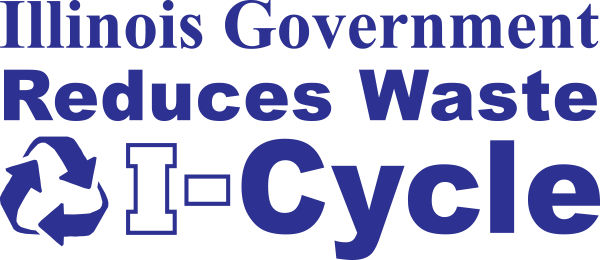
In Illinois poor waste management still looms as a major challenge to environmental and public health, as well as economic efficiency.
The state produces more than 7 million tons of municipal solid waste (MSW) annually, which is as heavy as about five pounds a person per day, and the idea to deal with this amount has raised concerns. To tackle this issue, we should first understand what causes poor waste management, what the effects of it are and what we can do to fix it.
Reasons For Inefficient Waste Management
Proper trash disposal in Illinois would be more manageable if there was not one important reason behind the poor waste management in the country and that is the absence of a uniform, effective plan.
Unlike most other developed countries, the U.S. has decentralized waste management, leaving it up to state and local governments like Naperville, IL to deal with. This decentralization leads to enormous differences in the way waste is handled and different infrastructure in place to facilitate this across the states. Wealthy states with strong funding and progressive policies, like California and Oregon, tend to do well, while the rest have a harder time competing.
The recycling infrastructure in the U.S. has also been insufficient and inconsistent.
A significant number of communities do not have access to curbside recycling programs, and poorly informed public education efforts have been inadequate, leading the general public to be unaware of proper recycling practices.
Recyclable materials can be contaminated when they are mixed with non-recyclable materials (such as plastics and food waste) and result in lower efficiency of the recycling process. Adding to that problem, China’s 2018 ban on most recyclables sent the global recycling markets into a tailspin, which left the U.S. with fewer places that want its garbage.
Another contributor is consumer culture.
In this consumption-driven economy, we have developed a throwaway culture that prioritizes convenience over sustainability. Waste generation is compounded by single-use plastics, an excessive use of packaging, and a general reliance on disposable products.
Consumer behaviour changes to address plastics have been piecemeal and patchy at best, reusable alternatives have been adopted slowly and there has not been a systemic push to reduce waste.
Public Health And Environmental Impacts
Let us see how poor waste management affects the environment.
Landfills — the end-of-the-line for around half of all U.S. waste — emit large amounts of methane, a powerful greenhouse gas. Landfill methane emissions drive climate change and are an energy capture opportunity. Furthermore, if not properly disposed of, hazardous waste such as electronics and chemical substances can leach into soil and water, impacting ecosystems as well as human wellness.
Plastic waste also poses a particular challenge. The United States produces millions of tons of plastic each year, a significant portion of which finds its way to the nation’s waterways and oceans. Microplastics, which are created through the breakdown of larger plastic products, have made their way into drinking water, seafood and even human blood, raising significant health concerns.
The health of the public is also directly impacted by the poor management of waste in Illinois. Open dumps and poorly managed landfills can attract pests, disseminate disease and expose surrounding communities to toxic pollutants. Low-income and marginalized communities are disproportionately affected, often living nearer to landfills and waste processing facilities in what’s known as environmental injustice.
Costs and Inefficiencies in the Economy
Poor waste management has a huge economic impact. Poor waste management systems create a huge burden on municipalities in the form of tipping fees for landfill disposal, waste collection costs, and remediation of polluted sites.
In addition, by not fully adopting the circular economy, Illinois misses out on economic opportunities. Recycling and recovery of materials creates jobs, preserves resources, and helps minimize extraction and use of first materials.
Potential Solutions
It takes a multi-faceted approach to make a dent in the issue of trash in the U.S. That said, a national strategy backed by federal policies and funds might form the bedrock for cohesive and effective waste management across the states. This entails ambitious recycling targets, a unified waste classification system, and an investment in up-to-date infrastructure.
This makes it all the more important to improve recycling systems. Increasing recycling rates can be achieved by expanding access to curbside recycling, educating the public regarding sorting and establishing domestic markets for recyclable materials. Cutting-edge waste-to-energy technologies, sophisticated sorting systems, and biodegradable materials also promise to alleviate landfills pressure.
Another crucial step is to prevent waste from being generated in the first place. Plastic bans, extended producer responsibility (EPR) programs and incentives for sustainable product design are policies that could drive manufacturers and consumers to prioritize waste reduction. Grassroots change can also be stimulated through community-based initiatives, like composting programs and zero-waste movements.
Environmental justice is needed to help alleviate the burden of waste management problems faced by vulnerable communities. This includes ensuring that environmental laws are enforced more strictly, that waste facilities are sited in an equitable manner, and that we offer resources to help communities advocate for their constitutionally guaranteed right to a clean environment.
The challenges are significant in Illinois, but not insurmountable. A comprehensive plan that integrates policy reforms, technological advancements, and shifts in cultural mindsets can help begin a transition towards a sustainable and equitable waste disposal management system.
This urgent challenge calls for coordinated measures by government, industry and community to respond and shape a clean, healthy future for all with purpose and action.